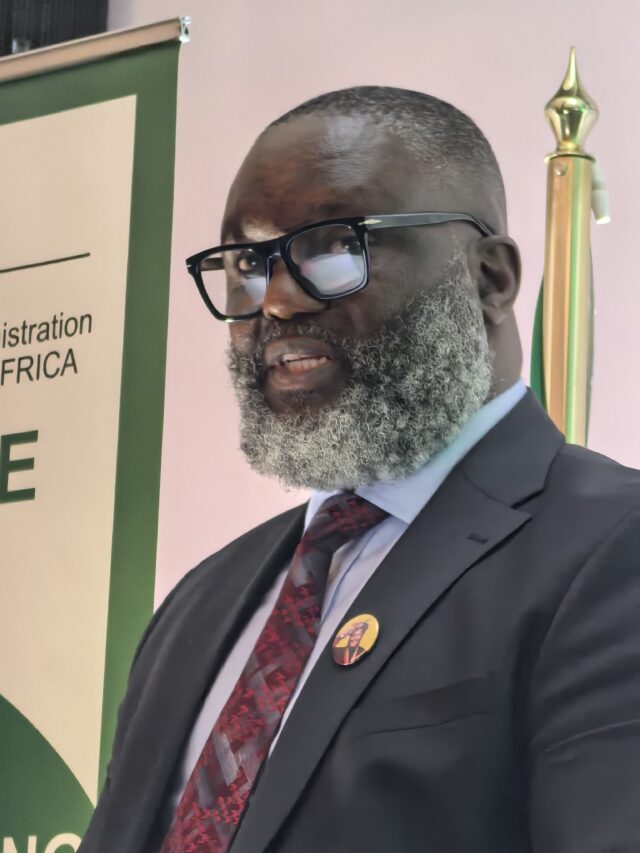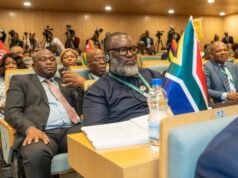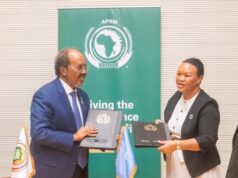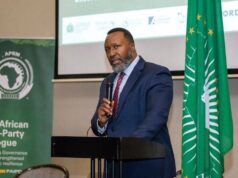Public Service and Administration Minister, Inkosi Mzamo Buthelezi on Tuesday officially launched an initiative aimed at serving as a progressive move towards realising the country’s commitment of justice for all.
The Open Government Challenge on improving access to justice to marginalised and vulnerable groups launched by Minister Buthelezi at the University of Pretoria will act as a vital link between the government and the people advocating for the voiceless to act against all forms of human rights violation.
The launch and the signing of the pledge on access to marginalised and vulnerable groups was a collaboration between the Department of Public Service and Administration and the South African Universities Law Clinics Association (SAULCA).
Speaking at the launch, Minister Buthelezi said at the heart of the open government challenge programme lies the commitment, not only to be transparent, but to lead with integrity, accountability and responsiveness.
He further said that when the society complain that the courts of law are slow…that services are inaccessible and decisions are unfair, as partners they should not take that as positive feedback because it is not, adding that it is in fact, a call for moral leadership.
According to Minister Buthelezi, history will not remember them based on a number of new courts they have built, the magistrates that they have appointed and law practitioners, they have produced, but history will remember them on whether the marginalised and vulnerable have found justice.
Dialogues and society driven initiatives must be driven towards in an environment that ensure that the marginalised and vulnerable people are not only heard, but are engaged, but where they are not represented, they are protected.
He said all these challenges needs to be addressed with empowerment programmes [to promote human rights] for the marginalised and vulnerable groups.
“One of the ideas will be to develop and adopt a national action plan that is led by non-governmental organisation to provide access to justice and related empowerment programmes to marginalised and most vulnerable groups,” he said.
Speaking on behalf of Public Protector, Advocate Kholeka Gcaleka, Ms Veronika Pillay, Acting Executive Manager at the Public Protector of South Africa said the Public Protector serves as a constitutional shield for the vulnerable and marginalised…citizens who often lack the resources, knowledge, or capacity to navigate complex administrative and legal processes.
“Our work addresses systemic maladministration, service delivery failures, corruption, and improper conduct…each of which directly impacts the ability of marginalised communities to access their constitutionally guaranteed rights, including the right to justice.
“Despite our progressive constitutional framework, South Africa continues to face profound challenges in ensuring equitable access to justice for all,” she said.
According to Ms Pillay, the 2024 Public Protector’s report on challenges in the justice system relating to gender-based violence revealed maladministration in the Department of Justice and Constitutional Development, including dilapidated court facilities, inadequate human resource capacity such as GBV-specialised prosecutors and interpreters, and unnecessary delays in service delivery.
“Similarly, our interventions in rural areas such as in the Eastern Cape following service delivery failures and in KwaZulu-Natal after the 2022 floods have highlighted the urgent need for coordinated, multi-sectoral responses to ensure that marginalised communities can access emergency relief, social protection, and justice mechanisms.
“These challenges are not unique to South Africa. They reflect global patterns of inequality and exclusion that undermine the promise of the rule of law and democratic accountability,” she said.
The Open Government Partnership Challenge: A Collaborative Response
According to Ms Pillay, the Open Government Challenge on improving access to justice for marginalised and vulnerable groups represents a bold and ambitious commitment by South Africa to address these systemic barriers through collaborative, multi-stakeholder action.
This initiative aligns with the principles of open governance—transparency, accountability, and citizen participation—and recognises that no single institution or sector can solve the access to justice crisis alone.









